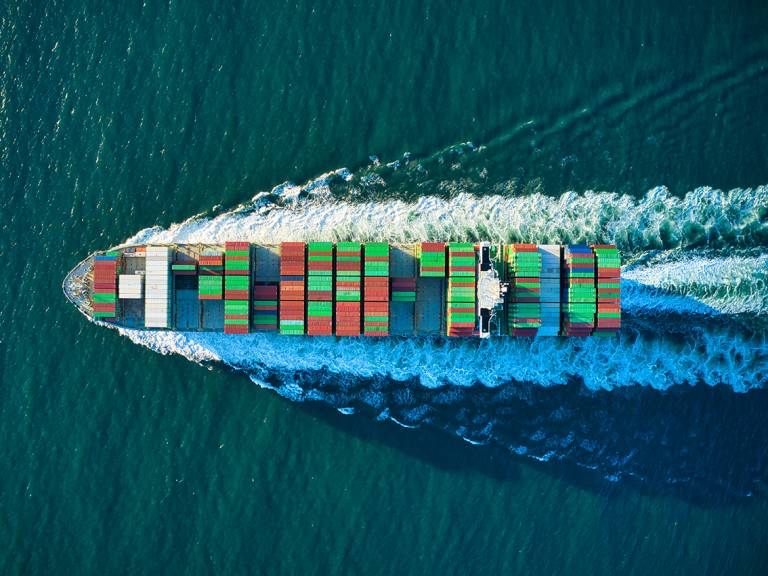New report points to significant progress by the shipping industry on its path to decarbonisation
22 September 2022
The report ‘Climate Action in Shipping Report - Progress towards Shipping’s 2030 Breakthrough’ assesses progress towards 2030 breakthrough goals.

The shipping industry is working towards full decarbonization by 2050 at the latest and last year an action plan was launched on which both private and public actors can focus their collective efforts around this and coming decades. Alongside this, the UN High Level Climate Champions launched the 2030 Breakthroughs to give greater clarity on the path to halving emissions by 2030 across the global economy.
The study, led by Katharine Palmer, Shipping Lead for the UN High level Climate Champions team, and Dr Domagoj Baresic, Research Associate at UCL Energy Institute and Consultant at UMAS - UCL Energy Institute’s maritime consultancy wing, evaluated the 2030 breakthrough goals against key levers for change, which include: technology and supply, finance, policy, demand, and civil society action. This was supported by The Getting to Zero Coalition - an industry led Coalition of more than 200 members from across the maritime value chain in partnership with the World Economic Forum and the Global Maritime Forum.
The report finds there has been “significant progress from industry, national governments and positive developments at the International Maritime Organisation”, but converting those commitments into concrete developments is vital for further progress.
Although there are positive developments, the report did find that shipping is only “partially on track” for progress on technology and supply of Scalable Zero Emission Fuels (SZEF). While there are more than 200 shipping decarbonization pilot and demonstration projects in the pipeline and progress has been observed regarding bunkering and safety guidelines internationally, moving from pilots to SZEF production commitments, investments, and infrastructure development is now a key requirement. The report also highlighted the need for positive policy signals, such as consensus on pricing greenhouse gas emissions, translate into firm agreements at the International Maritime Organisation in 2023.
Domagoj Baresic said:
“In order for the shipping industry to decarbonize, multiple actions which can increase production and adoption of scalable zero emission fuels in the industry are required now. This report provides evidence for the significant progress which has been made to decarbonize shipping, yet at the same time shows that further significant action is required. The evidence presented shows now is the time to take the necessary actions to ensure that by 2030 the industry is committed to a decarbonization trajectory.”
Further information
Photo by Venti Views on Unsplash
 Close
Close

